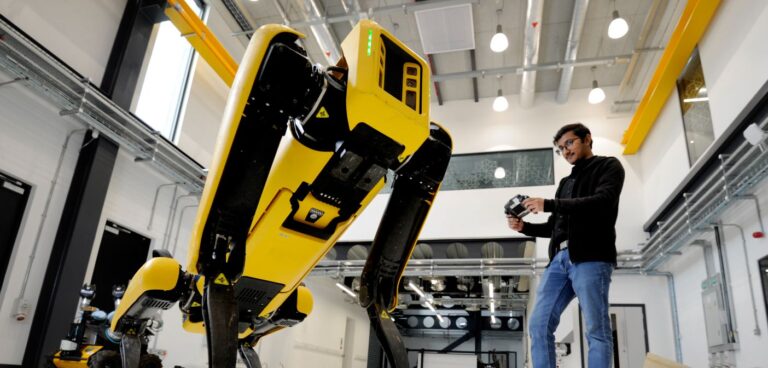Robots are no longer tropes from science fiction novels or films, or some distant idea in the future – they’re just around the corner. Stewart Miller, CEO of the UK’s recently opened National Robotarium, believes the time is now to prepare for the arrival of the era of robotics – for the best benefit of society, the manufacturing sector and the economy at large…
Scrolling through a never-ending stream of recipes, holidays and funny cat videos makes social media feel warm and fuzzy. Yet beneath that friendly surface lies a dark underbelly. From the spreading of hate speech and the promotion of self-harm to the disruption of industries from bookshops to local newspapers, social media has often had unintended consequences.
Society is still playing catch-up when it comes to the regulation and control of social networks and their algorithms – we’ve been on the back foot from the outset, and never ahead. We need to learn from our mistakes with social media, and not repeat them when it comes to robotics.
That’s why it’s essential for 2023 to mark the start of a debate about how we as a society want to use robots, automated systems and artificial intelligence (AI). As the new year dawns, now is the time to lay the groundwork for how society wants to use robots, what we do and don’t want them to do for us, the boundaries we want to set for them and how they will positively impact our daily lives and grow the UK economy.
Readying the public
The start of that conversation needs to be an open and frank discussion with members of the public, so that we can make informed decisions about the benefits we want from robots and the restrictions we want to put on them.
It’s important that people understand the benefits of robotic technology and the way its arrival will change the status quo. We not only need to consider how robots can be best incorporated into our lives, but also the impact they will have on society.
That discussion should include the need to get the right policies, legislation, regulation and certification in place, while ensuring we understand how to harness the potential benefits of robotics, so that we are not caught on the back foot.
That legal framework isn’t simply a job for politicians and civil servants. Instead, an informed debate needs to take place in society, so that the voices of people whose lives could benefit most from robotics – from hospital patients and care home residents through to farmers and workers in dangerous environments – are heard during these discussions.
We have the chance to get ahead of the curve and manage the integration of robotic technology into society safely.
Securing talent and skills
Robots are nothing without people. In order to underpin the expansion of the UK’s robotics industry, people need the right knowledge and skills to work with robotic technology. We must train people so that they can design robots, build robots and write the software that controls robots.
That creates incredible opportunities for people who are already working in a wide range of sectors, from software developers and program coders through to product designers and management consultants. Yet we also need people with the right skills to service and maintain those robots – and, more broadly, to work alongside them and give them the right instructions to make them useful.
Such a shift requires people working in a wide variety of industries to be equipped with the right skills to get the most out of robots in the workplace, and that in turn has a knock-on effect for skills planning, from government agencies and funding bodies through to the colleges, universities and other training providers that will deliver those skills.
Preparing the industrial base
Coming up with the ideas for great robots and their uses is only the first piece of the puzzle. Manufacturing those robots is the next step. Building robots in the UK means we won’t need to import them from overseas players such as China, Japan, Germany, Denmark or the USA. Reducing imports will keep more of the economic benefits of robotics here in the UK economy.
Making sure that we have the investment needed to build manufacturing plants, software laboratories and design studios will not only create companies and jobs, but will also help existing businesses to expand into the robotics sector. Again, such a shift will require action from governments at central, devolved and local levels, working together to lay the groundwork for the UK to reap the benefits of AI, automated systems and robotic technology.
It will also create opportunities for private-sector investors to get involved at the ground level and generate long-term returns on their investments. Now is the time to prepare for the arrival of the era of robotics – for the best benefit of society, of the manufacturing sector and of the economy at large. Let’s use 2023 to kickstart those conversations.
This article was written by Stewart Miller, CEO, National Robotarium.








